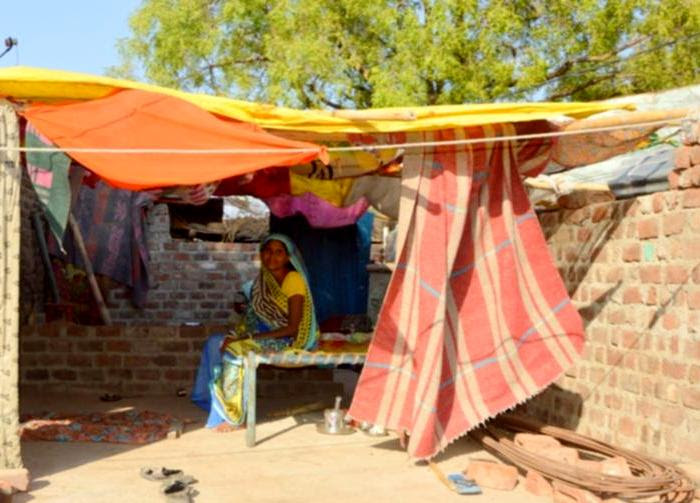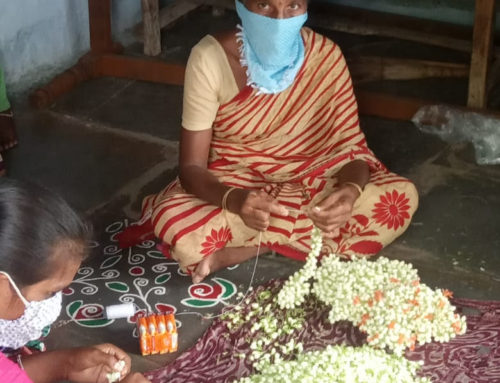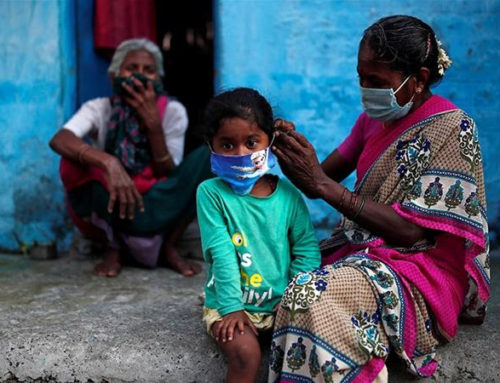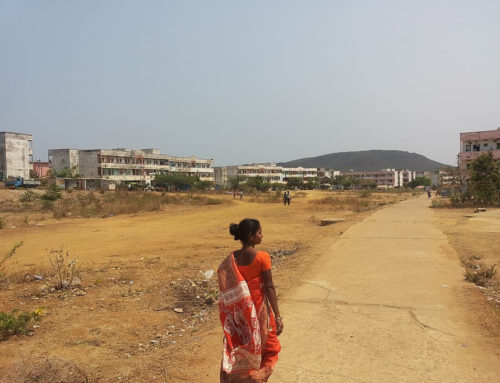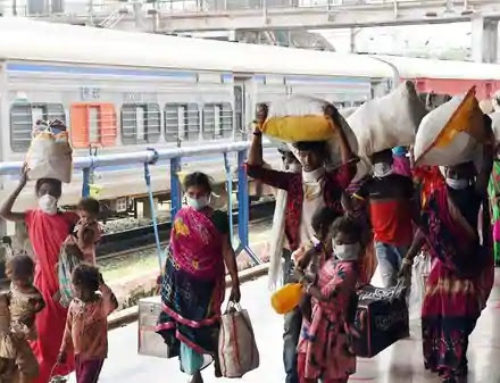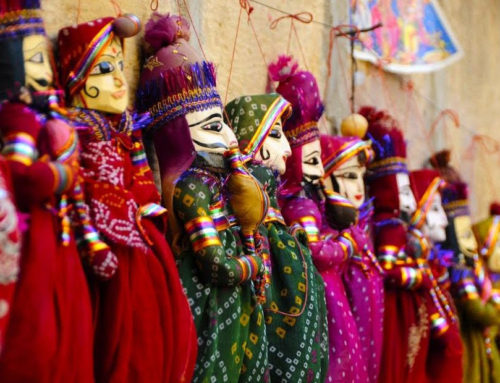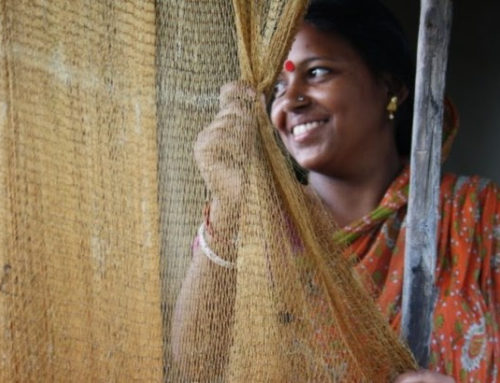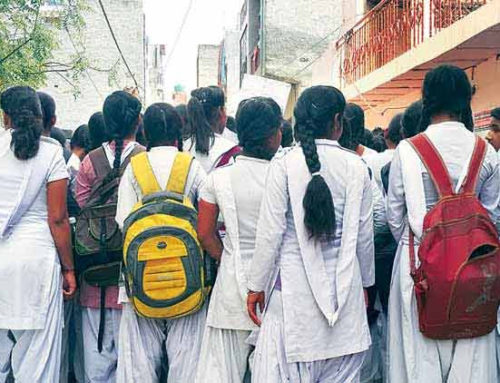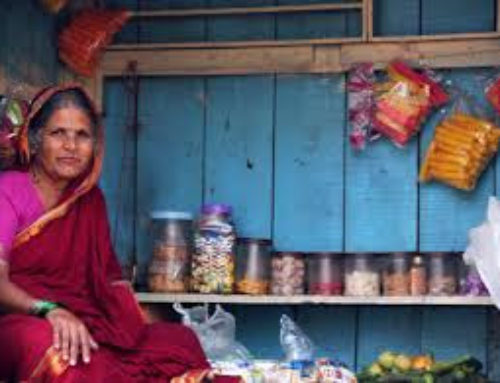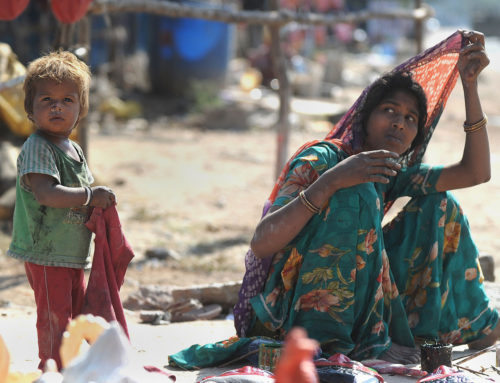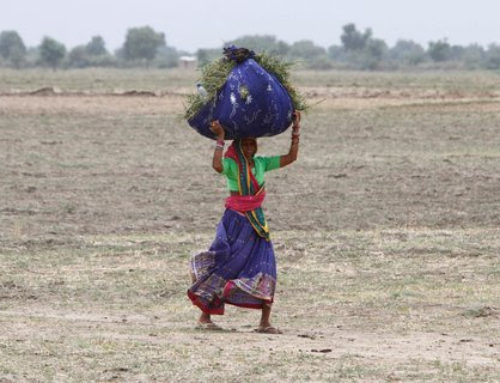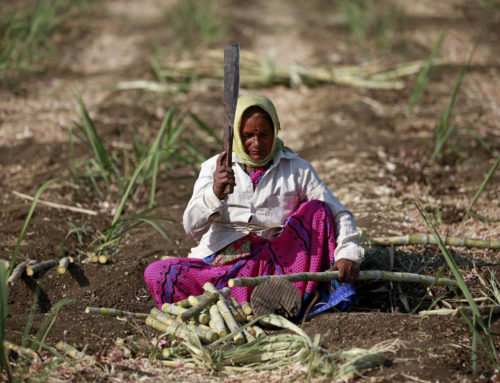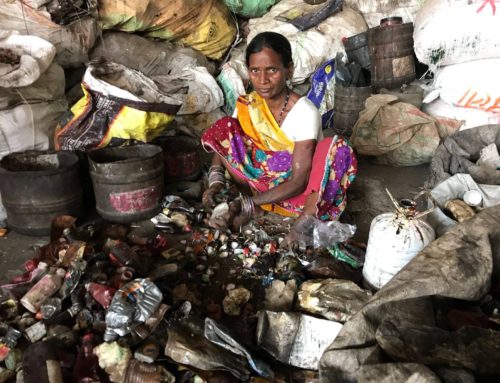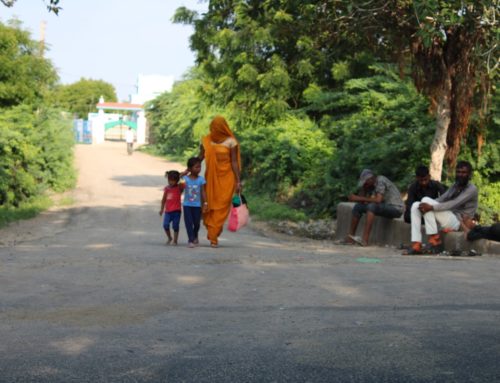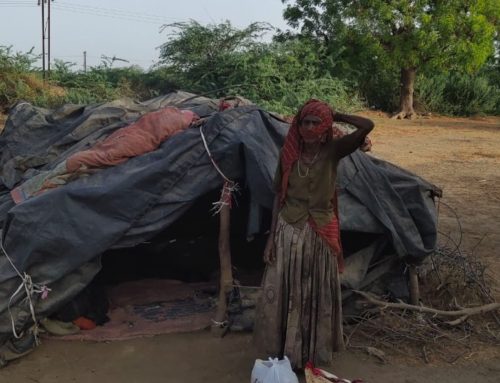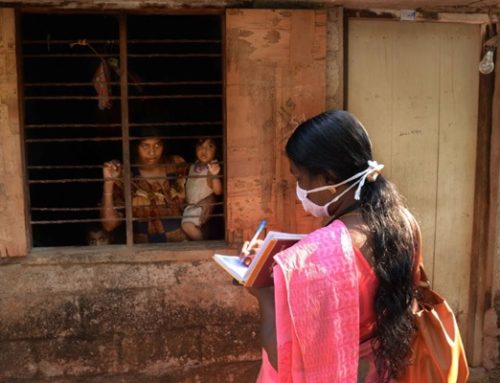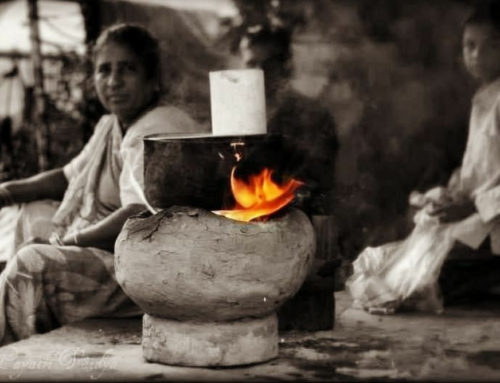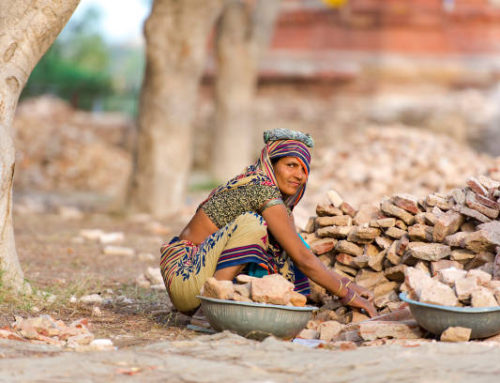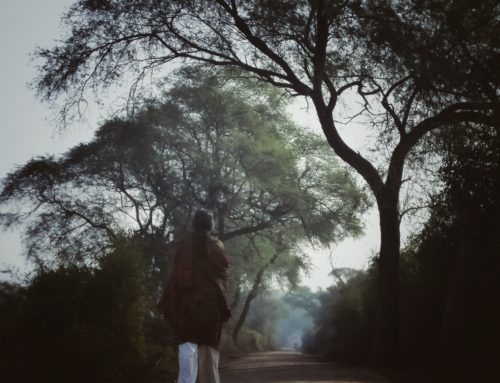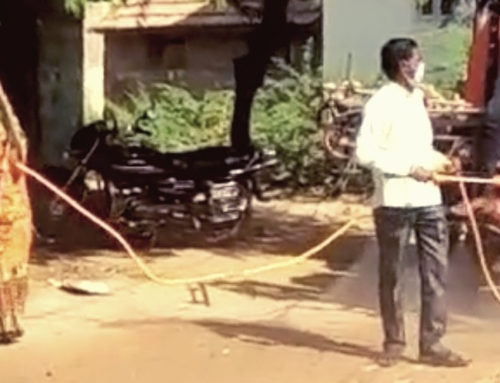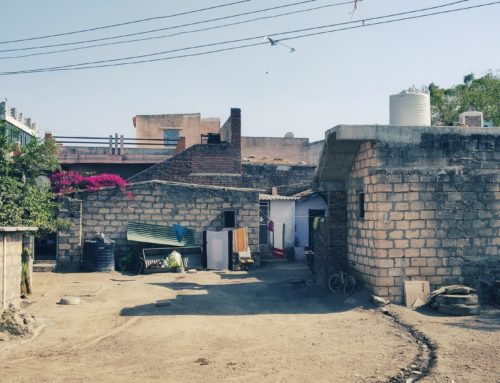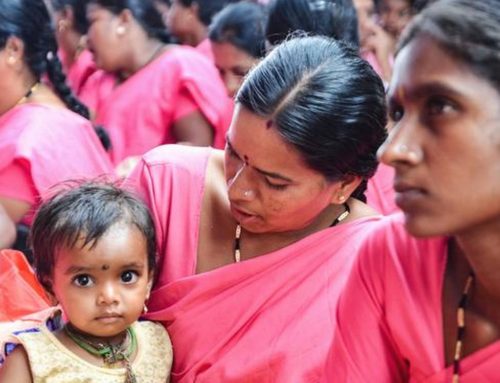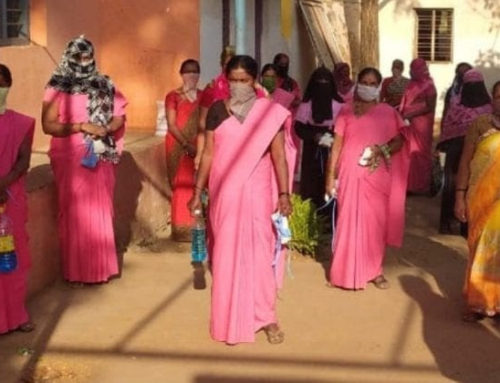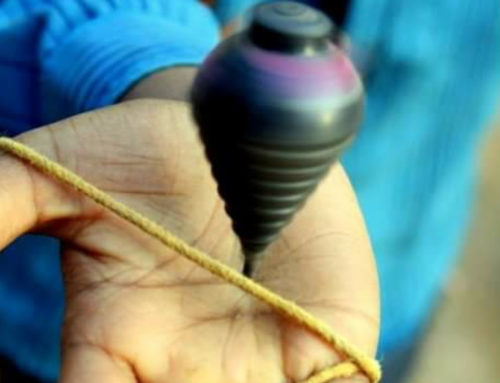Sharda met with an accident a decade ago compromising her mobility severely – she is incapacitated in her left leg. Sharda has not been able to get into paid work after that – confining her to household duties. Her husband, Keshav, is a waste collector who goes door to door in his village, Sadla, to collect waste material like metal and plastic and sell it to a kabadi in Patdi, a town in the Surendranagar district of Gujarat. Having to split his minimal earnings with his nephew who provides transport for Keshav to make these everyday dealings possible, he is able to bring home close to Rs. 4,000 a month.
Their 1 room kuccha house, made of cloth and plastic, houses 8 members – Sharda, Keshav, their 5 children and a daughter-in-law. Her son, who is only 13, did not go to school because he had to start earning for the family. He now works with a mason along with his older brother who is 19. Sharda’s third son who is 10 also does not go to school. Her daughter, Gopi, who is 8, is in 3rd standard and the youngest, Suman, who is 5, has a slight handicap.
They received a relief package, in April, from a non-profit organisation working in the area, which lasted them 13 days after which they were back to empty dabbas. With immense chagrin, Sharda informed us that on exhausting all the tricks in her basket, her last resort was to make her daughter go to beg for food in the village – using her tender age as a tool to convince people to provide help. After many tears and protests, the 8 year old would go into the village, against her wishes, every evening to get some food which obviously was not enough to feed 8 people.
No matter the age, every member had a role to play in keeping the family afloat in time of extreme crisis. With lockdown easing up a little, Keshav is taking whatever job that comes his way to support the family but the family’s troubles are far from over. With approaching rains, their kuccha house is barely holding up – Sharda doing the best with resources available to her to keep it standing – from covering the roof to stuffing plastic in every nook and cranny to keep the water from coming in.
Case Study reported by: SWATI Team
Location: Gujarat
Hunger in a World of Plenty
The economic theory of the cycle of poverty is defined as a set of factors and events by which poverty, once started, is likely to continue, unless there is outside intervention. This is so well-illustrated in Sharda’s story – the lack of money leading to the illiteracy of her children reducing job opportunities – facing humiliation for having to ask for food leading to a lowered sense of self – both combined to form a spiral further down the hole of poverty. What are we, as a people, doing to ensure Gopi has a fair chance to a just life?

